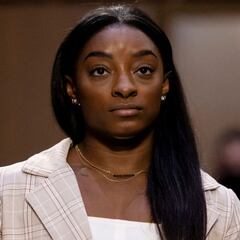Women athletes urge Supreme Court to protect abortion rights
More than 500 female athletes including soccer star Megan Rapinoe have called on the US Supreme Court to reject a Mississippi law that curtails abortion rights.


The athletes, among them WNBA veterans Diana Taurasi, Sue Bird, and Breanna Stewart, as well as Ashleigh Johnson, the first black woman on the US Olympic water polo team and an Olympic gold medalist, are asking the Court to reject Mississippi’s Republican-led attempt to prohibit abortions after 15 weeks of pregnancy.
More than 500 athletes and groups signed a friend-of-the-court brief, where they stated that abortion rights have contributed to the growth of women’s sports. They argued that restrictions on abortion, such as those stated in the Mississippi law, would adversely affect future athletes.
Megan Rapinoe, other women athletes back abortion rights at U.S. Supreme Court https://t.co/ubo48VwpTG pic.twitter.com/YAonZ4fNRO
— Reuters Politics (@ReutersPolitics) September 20, 2021
The signatories include 26 Olympians, 73 professional athletes, 276 college athletes, and several athletic groups.
Rapinoe: Mississippi law "infuriating and un-American"
The brief stated that “the physical tolls of forced pregnancy and childbirth would undermine athletes’ ability to actualize their full human potential”, if they were deprived of the right to end a pregnancy.
“As women athletes and people in sports, we must have the power to make important decisions about our bodies and exert control over our reproductive lives,” said Rapinoe in a statement. The two-time World Cup winner and Olympic gold medalist branded the law limiting abortion rights as “infuriating and un-American”.
See also:
- USWNTPA brands US Soccer’s gender equal contract proposal a “PR stunt"
- Biles slams FBI, US gymnastics officials for enabling sex abuse
Mississippi attempts to overturn Roe v. Wade
Mississippi Attorney General Lynn Fitch, a Republican supported by anti-abortion groups, filed papers with the Court stating that the landmark Roe v. Wade ruling and a subsequent Planned Parenthood v. Casey decision were both “egregiously wrong” and should be overturned.
The 1973 case legalized abortion while the 1992 ruling guaranteed women’s right to an abortion before a fetus can survive outside the womb.
Related stories
The Supreme Court, which has a 6-3 conservative majority, has scheduled oral arguments in the case for Dec. 1, when the constitutionality of the Mississippi law prohibiting abortions after 15 weeks of pregnancy will be considered.
A ruling is expected by the end of June next year.

